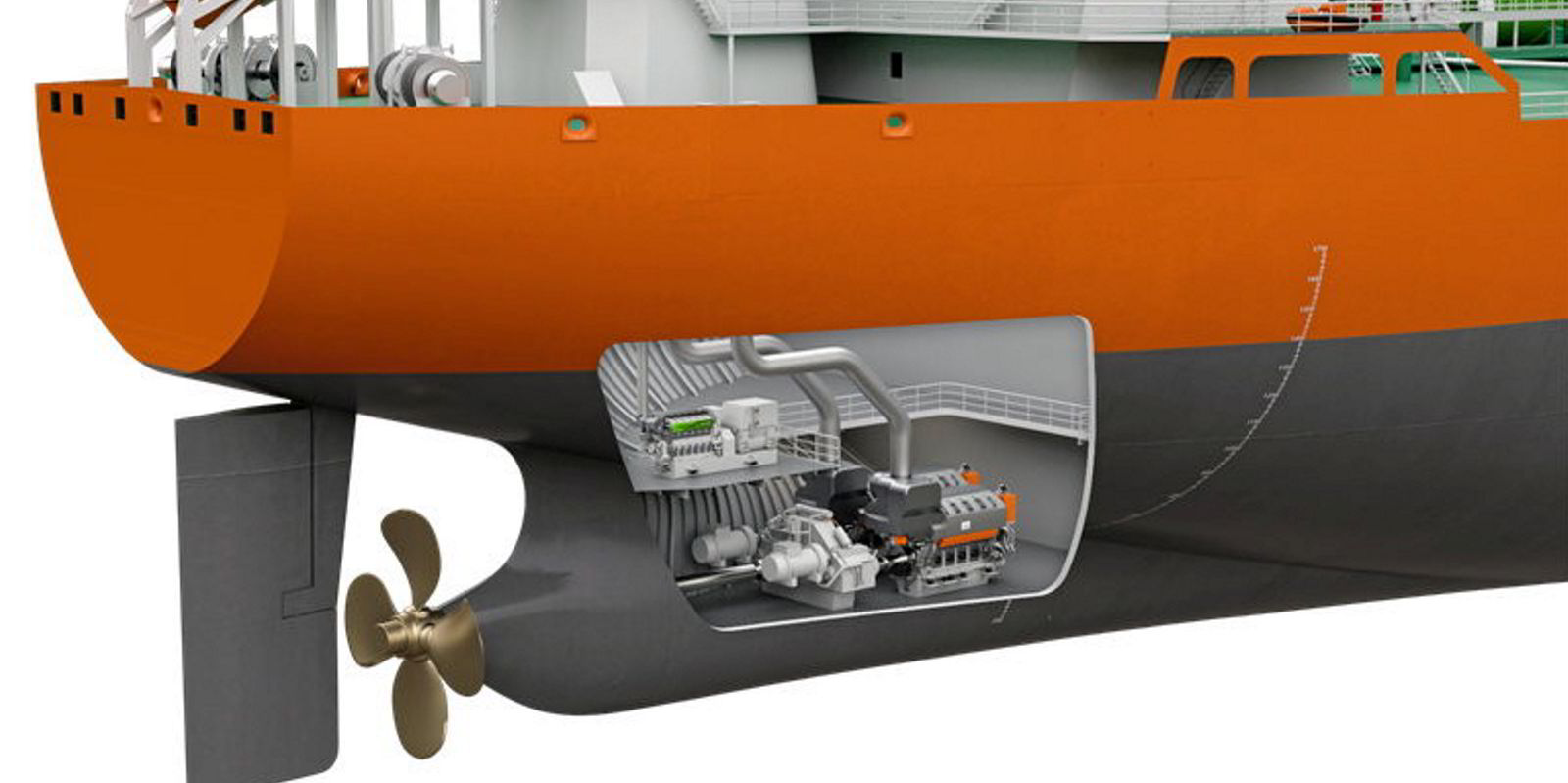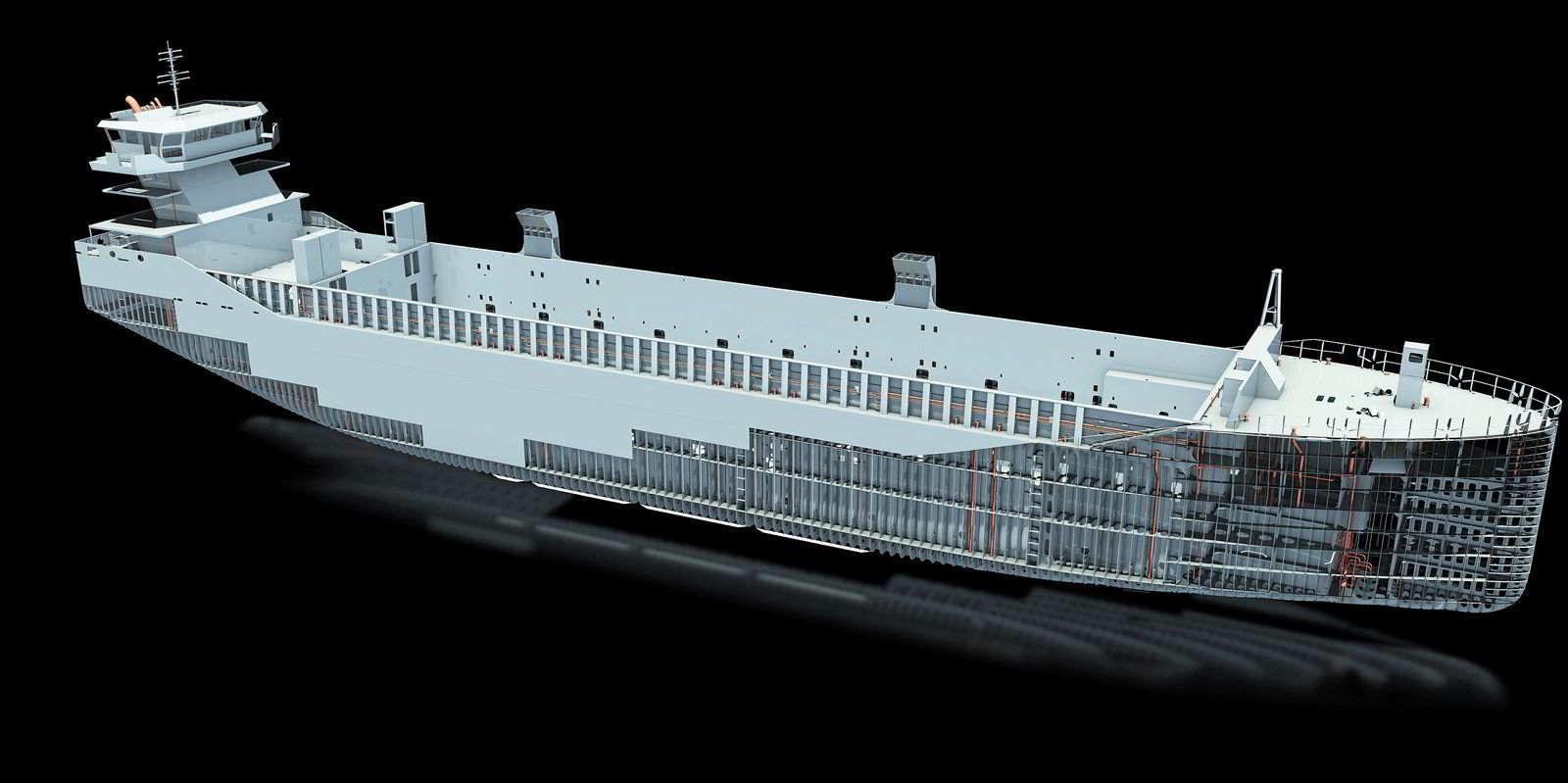Marine technology group Wartsila and Italian classification society RINA have come up with a way to hit International Maritime Organization 2030 targets for cutting emissions.
The system involves using current four-stroke dual-fuel engines.
Installing two of the Wartsila 31DF engines, fuelled on LNG with electric power back-up for when the ship is idle, can lower a ship’s Energy Efficiency Design Index (EEDI) value by up to 50%.
It can also cut CO2 emissions by 40%, in line with the IMO 2030 target, the companies said.
The “future-proofed” approach utilises just the one type of engine rather than conventional ship designs which use two-stroke engines for propulsion and four-stroke engines for electric power generation.
RINA said the new arrangement offers full redundancy, lower capital expenditure, reduced operational complexity and optimised fuel consumption. Options for electric power are batteries or a small diesel fuel generator.
Wartsila 31DF engines have the flexibility to utilise zero-carbon fuels in the future, the Finnish engine maker said.
“We see this propulsion arrangement as being an important and value-adding option for the coming generation of newbuilds,” said Lars Anderson, director, product management and sales support of Wartsila Marine Power.
At current shipping speeds, the system performance of the new arrangement provides at least the same, or better efficiency than an equivalent two-stroke design, the companies said. At slower speeds, it has the potential to reduce fuel consumption and emission levels even further.
“We are really excited about this new concept as it represents a proven and more efficient solution than was earlier possible,” said Antonios Trakakis, Greece marine technical director at RINA.
“The combination of fewer running components and 100 percent redundancy, with a single engine capable of handling both propulsion and electric power, even in port, promotes both safety and reliability,”
Guinness World Records has recognised the diesel version of the Wartsila 31 engine type as being the world’s most efficient four-stroke diesel engine, the companies said.
“Wartsila is committed to leading shipping into a new era of higher efficiencies, lower operating costs and greater environmental sustainability,” added Anderson.





